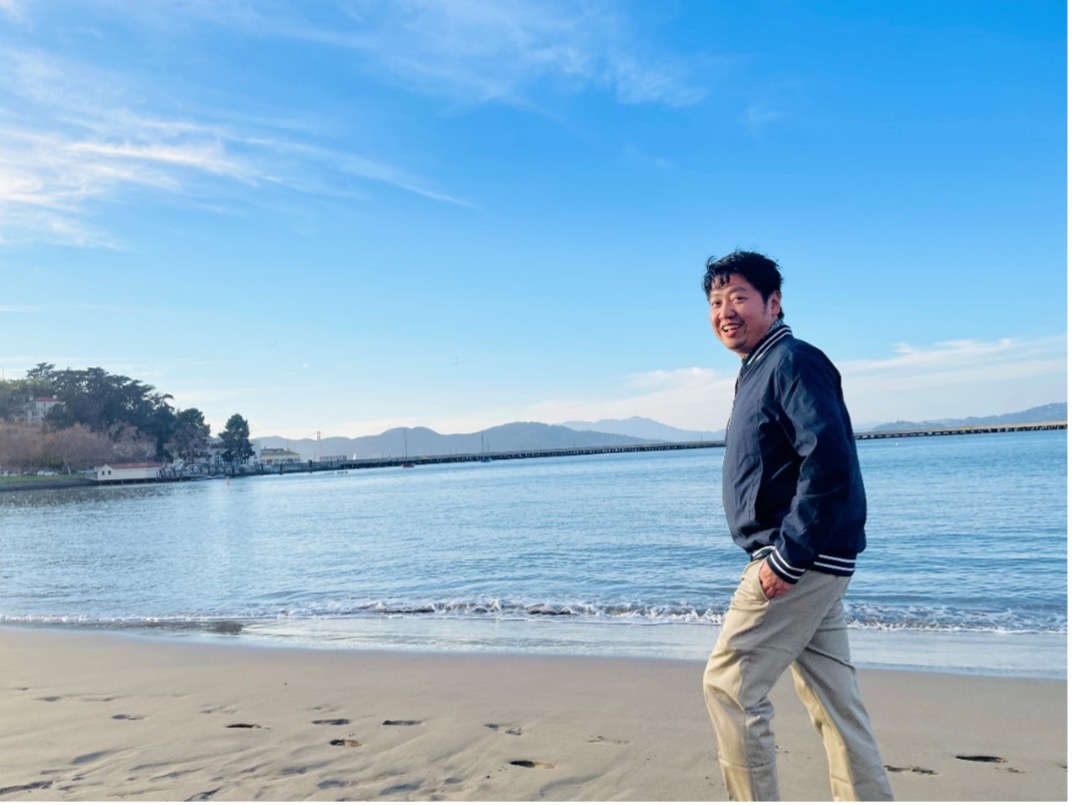
Seeking broad, rigorous training in agriculture led student to discover opportunities at Purdue
Growing up in the Anhui Province of China, known for its picturesque scenery and featured agricultural products, Yizhou Hua developed a passion and love for agriculture.
He signed up for the extremely competitive post-graduate entrance examination in China which launched his education in agriculture, with a specialization in agricultural economics, in the Center for Chinese Agricultural Policy at the Chinese Academy of Science (CCAP-CAS).
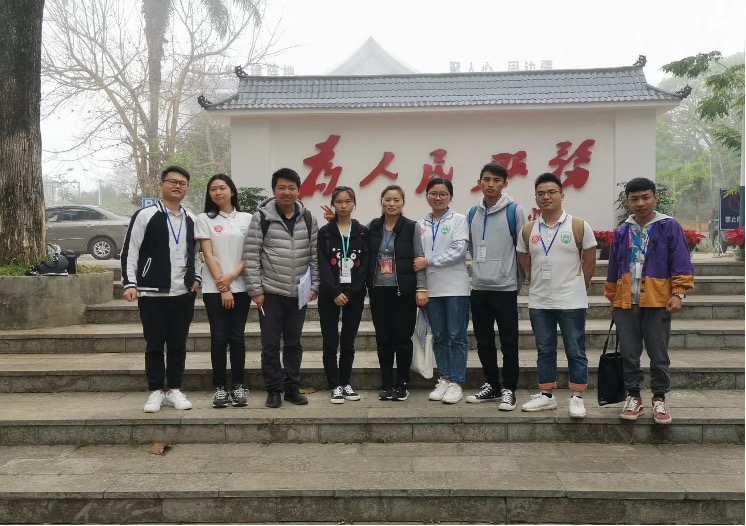
Yizhou (pictured third from the left) with his household survey with teammates in Yunnan Province, China
Upon graduation, Yizhou took a role as a full-time research assistant in the China Center for Agricultural Policy at Peking University (CCAP-PKU) which allowed him to participate in household surveys and field experiments in different rural areas of China. While the experience greatly improved his understanding of producer behaviors, he became interested in understanding consumer behavior and reached out to his colleagues and the director at CCAP-PKU for advice.
He learned about the Purdue Agricultural Economics Department’s Ph.D. program, known for its consumer behavior research, and decided to apply and was admitted into the department’s Ph.D. program in 2019.
Yizhou’s research at Purdue has been focused on eliciting consumers’ willingness-to-pay using experimental methods under the guidance from his dissertation advisors Dr. Holly Wang, Dr. Jayson Lusk, Dr. Christine Wilson and Dr. Tim Cason.
“In my dissertation, I use a choice experiment or experimental auction method to elicit consumers’ willingness-to-pay for different products,” said Yizhou. “In my first dissertation paper, I aim to elicit students’ willingness-to-pay for alternative learning options (in-person, online, hybrid). By conducting choice experiments at Purdue University, the results showed that undergraduate students overall are willing to pay 31% and 7.6% less for online and hybrid options, respectively, compared with in-person study options. This indicated that students would not view different learning options equally and universities may adopt differential pricing strategies.”
“In my second paper, I tried to estimate consumers’ willingness-to-pay for meat alternatives (convention meat, plant-based meat and cultivated meat) in the U.S., China and South Korea. Based on the willingness-to-pay, market shares and demand elasticity could be predicted.”
Yizhou is now working on his third dissertation paper which involves looking for real cultivated meat for experiments. He ran into a snag trying to find materials; however, he recently secured a graduate student networking grant from the department which allowed him to get clues and make progress on the project.
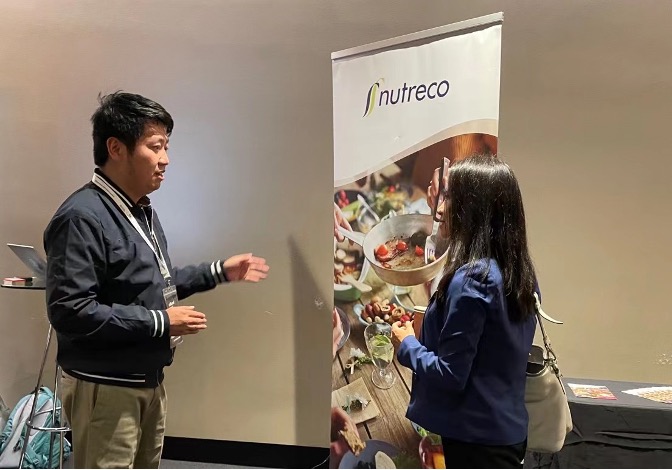
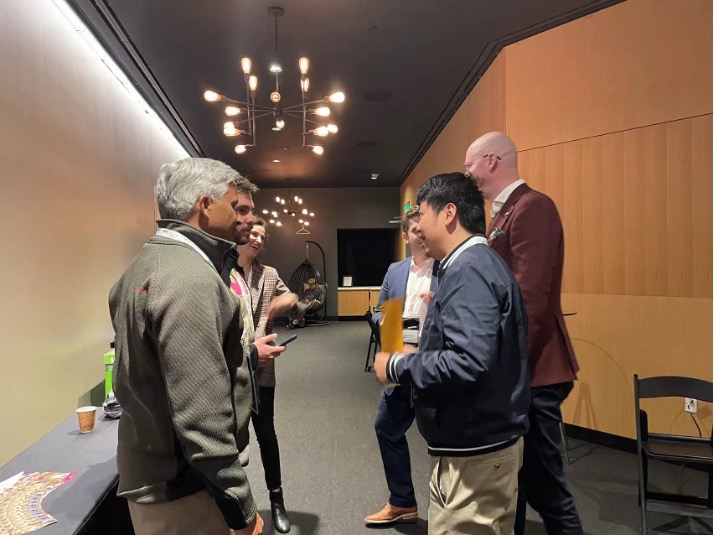
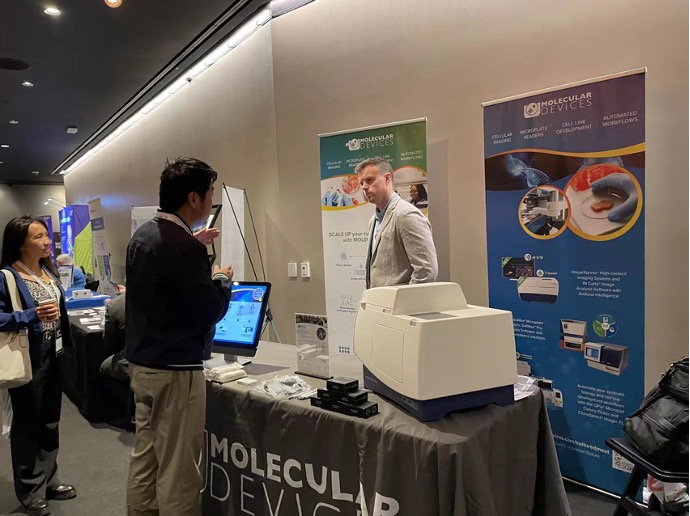
First picture: Yizhou and Dr. Wang at a cultivated meat symposium in California
Second and third picture: Yizhou communicating with cultivated meat start-up representatives
“Dr. Holly Wang and I traveled to California to attend a cultivated meat symposium and found start-ups willing to offer support for our experiments, should those opportunities mature,” said Yizhou.
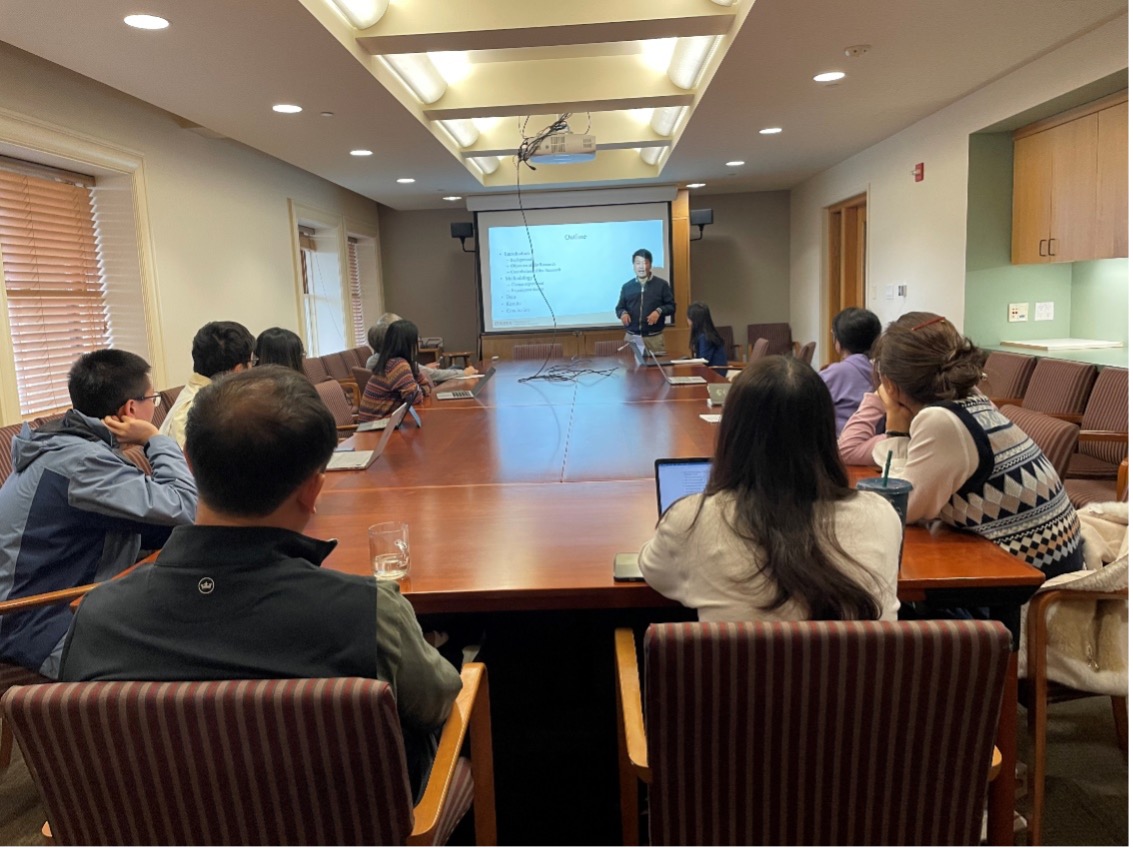
Yizhou introducing research at SCCEI
“We also visited the Stanford Center on China’s Economy and Institutions (SCCEI) and shared our research with faculty, post-docs and graduate students there which helped us to have a better understanding of the research field and expertise in our respective organizations.”
While working on his dissertation research, Yizhou has also worked as a graduate instructor and found the experience refreshing and helpful towards his understanding of college cultures in the United States.
“It was awesome to be a graduate instructor for AGEC 217 this summer. As an instructor, I prepared online course materials and answered questions ranging from macroeconomics concepts to grade concerns. Before taking on the role, I worked as a teaching assistant for AGEC 217 to become familiar with the teaching content. By seeking suggestions from other former instructors to AGEC 217, I found the proper ways of interacting with students remotely online and received good feedback.”
Yizhou was motivated by many great and inspiring people here at Purdue and appreciates the firm support he’s received thus far.
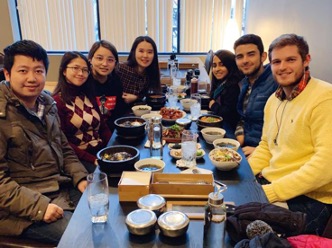
Yizhou having dinner with his Purdue Ag Econ co-hort
“My dissertation chair and advisor, Dr. Wang has helped with facilitating academic research and Ph.D. life. My committee members Dr. Lusk, Dr. Wilson and Dr. Cason’s assistance has been indispensable. I also appreciate Dr. Nicole Olynk-Widmar and Dr. Scott Downey’s support in modifying my role from a research assistant to a teaching assistant for AGEC 217, which has enriched my college experience. I also must thank my colleagues in my cohort like Mario, Zack, Claire, Heyjim, Rimi and Nick, etc. We together as great friends, offered each other support and suggestions on life experiences. In fact, there are too many to name. I am appreciative of the inclusive and friendly environment that our department offers us students.”
Looking ahead, Yizhou is looking forward to completing his dissertation and upon graduation hopes to further his research in the experimental economics field, possibly as a post-doctoral researcher to further sharpen his knowledge and skills.
